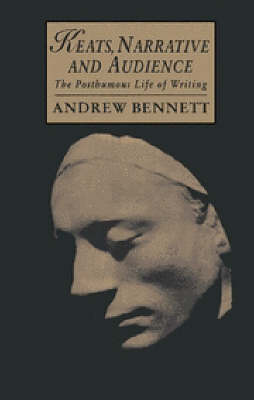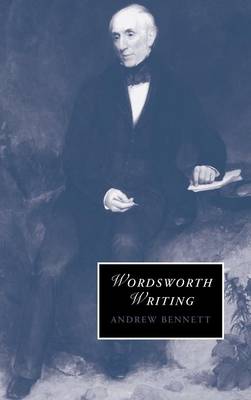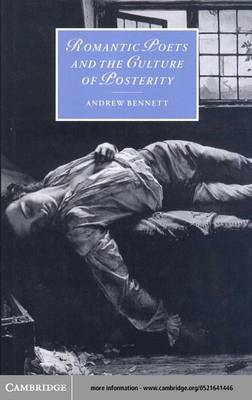Cambridge Studies in Romanticism
3 total works
Andrew Bennett's original study of Keats focuses on questions of narrative and audience as a means to offer new readings of the major poems. It discusses ways in which reading is 'figured' in Keats's poetry, and suggests that such 'figures of reading' have themselves determined certain modes of response to Keats's texts. Together with important new readings of Keats's poetry, the study presents a significant rethinking of the relationship between Romantic poetry and its audience. Developing recent discussions in literary theory concerning narrative, readers and reading, the nature of the audience for poetry, and the Romantic 'invention' of posterity, Bennett elaborates a sophisticated and historically specific reconceptualization of Romantic writing.
Andrew Bennett challenges the popular conception of Wordsworth as a writer who didn't so much write poetry as compose it aloud or in his head (usually while walking, and preferably while ascending mountains). The act and idea of writing is in fact central to the themes and to the rhetorical texture of Wordsworth's poetry. This wide-ranging study considers various aspects of Wordsworth's compositional practice, including questions of revision and dictation, of monumental inscription and graffiti, of talking and thinking, and of the poet's own theory of composition, and examines the implications of a critical tradition that erroneously assumes that Wordsworth employed exclusively 'oral' modes of composition. For Wordsworth, acts of writing were important dimensions of his poetry and indeed of his sense of personal and poetic identity. Bennett contends that a sustained attention to the question of writing in Wordsworth produces compelling readings of the major poems.
This 1999 book examines the way in which the Romantic period's culture of posterity inaugurates a tradition of writing which demands that the poet should write for an audience of the future: the true poet, a figure of neglected genius, can be properly appreciated only after death. Andrew Bennett argues that this involves a radical shift in the conceptualization of the poet and poetic reception, with wide-ranging implications for the poetry and poetics of the Romantic period. He surveys the contexts for this transformation of the relationship between poet and audience, engaging with issues such as the commercialization of poetry, the gendering of the canon, and the construction of poetic identity. Bennett goes on to discuss the strangely compelling effects which this reception theory produces in the work of Wordsworth, Coleridge, Keats, Shelley and Byron, who have come to embody, for posterity, the figure of the Romantic poet.


